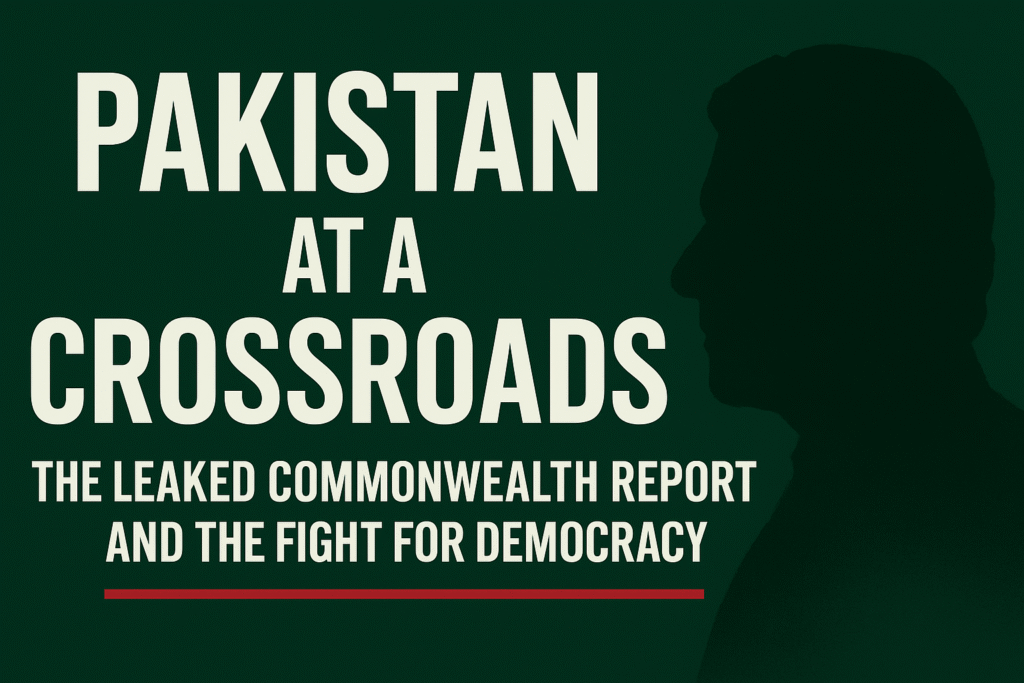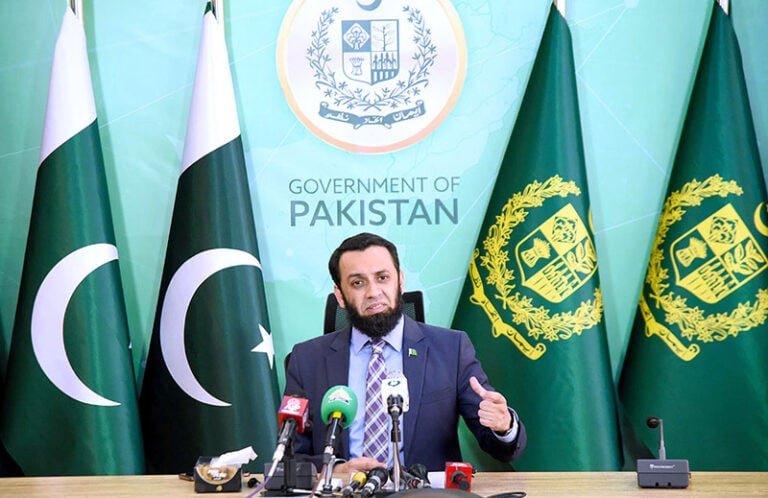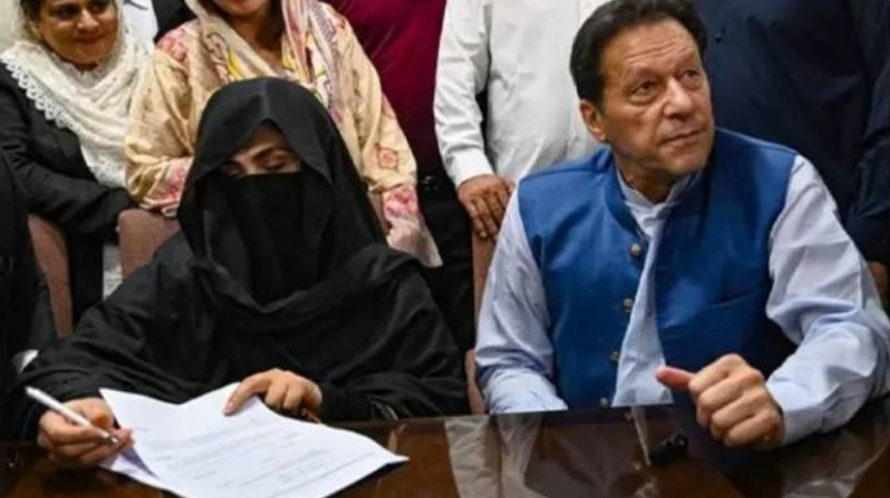The Leaked Commonwealth Report and the Political Crisis in Pakistan
Introduction – A Nation at a Crossroads
Pakistan is once again facing a turning point in its political history. The recently leaked Commonwealth report has shed light on one of the most controversial elections in the nation’s history. According to the findings, widespread rigging tainted the electoral process, and the people’s mandate was openly stolen. This revelation has ignited fresh debates about the legitimacy of the sitting government, the role of institutions, and the erosion of democracy in Pakistan.
For any democracy, elections are the foundation of legitimacy. If people lose faith in the voting process, the very spirit of democracy collapses. Unfortunately, in Pakistan’s case, repeated allegations of election fraud have already weakened public confidence. But this report goes beyond allegations—it officially documents the manipulation and exposes how certain officials facilitated it. The controversy is not just political; it is deeply constitutional, social, and moral.
At the heart of this crisis lies the clash between power and principle. On one side are those accused of betraying the nation’s trust for personal or institutional gain. On the other are those who chose conscience over comfort, truth over silence, and justice over compromise. This ongoing struggle has put Pakistan at a dangerous crossroads—whether it will slide further into authoritarianism or reclaim its democratic path.
The 8th Election and Allegations of Rigging
The 8th general election in Pakistan was expected to be a step forward for democracy. Instead, it turned into one of the darkest episodes in the country’s political journey. Reports of ballot manipulation, engineered results, and administrative interference quickly surfaced. But the leaked Commonwealth report has confirmed what many suspected all along: the election was rigged systematically and shamelessly.
Central to the controversy is Sikandar Sultan Raja, who was accused of playing a direct role in covering up electoral fraud. Instead of safeguarding the people’s will, he allegedly enabled and facilitated electoral theft. For many, this act symbolises the decay of institutions in Pakistan, where guardians of democracy are accused of betraying it.
The consequences of this rigging go beyond domestic politics. Internationally, Pakistan’s democratic image has been badly tarnished. Global observers now question whether the country genuinely respects electoral processes or merely stages them as a ritual. Domestically, the opposition has refused to accept the results, further widening the political divide.
This isn’t just about one election—it’s about the credibility of Pakistan’s entire democratic system. If rigging is normalised, future elections will carry little meaning. And when citizens feel their voices don’t count, instability, protests, and unrest become inevitable.
Legal Implications of Vote Theft in Pakistan
Under Pakistan’s Constitution, vote theft is considered a crime of the highest order. Article 6 directly addresses treason, and many argue that stealing the people’s mandate qualifies as an act against the state itself. In principle, the law against electoral fraud is strict, but in practice, it has been rendered ineffective. Critics point out that what they call “Asim Law” has overshadowed the Constitution, leaving no space for accountability.
Historically, Pakistan has struggled with enforcing laws against powerful individuals. Electoral reforms have been promised many times, but political interests always dilute them. Whenever an election is manipulated, calls for justice echo, but rarely do they translate into real consequences for those responsible.
The ineffectiveness of laws creates a dangerous precedent. If officials who manipulate elections know they will never face punishment, the cycle of fraud continues unchecked. Citizens begin to believe that laws apply only to the weak, not the powerful. This imbalance between law and power is at the root of Pakistan’s democratic crisis today.
Electoral theft is not just about political winners and losers—it is about eroding the very foundation of justice. Without fair elections, there can be no trust in governance, no respect for institutions, and no stability for the nation.
Voices of Conscience – Whistleblowers and Resistance
In times of oppression, those who speak truth to power become the torchbearers of hope. Liaquat Chatha is one such figure who prioritised his conscience over his career. By exposing fraud, he risked his position and safety, but in doing so, he proved that integrity still exists in Pakistan’s political landscape.
Similarly, judges who raised their voices against the 26th Constitutional Amendment displayed rare courage. In an environment where dissent is silenced and conformity rewarded, their stance was remarkable. They reminded the nation that the judiciary, though under pressure, still has individuals who are willing to defend the Constitution.
Whistleblowers and dissenting voices play a critical role in safeguarding democracy. They break the silence when institutions fail. Their sacrifices send a powerful message: positions and privileges are temporary, but truth and justice endure.
The importance of these individuals cannot be overstated. In an era of widespread fear, they symbolise resistance. They inspire ordinary citizens to believe that change is possible. And they show the world that even in the darkest times, conscience can shine through.
Political Repercussions – Resignations and Boycotts
The fallout from the leaked report and rigged elections has shaken the political order. Many senators and members of parliamentary committees have submitted their resignations in protest. For them, continuing to sit in assemblies under a government born out of fraud would mean legitimising the very crime they oppose.
Resignations may not directly change who rules Pakistan, but they carry immense symbolic weight. They demonstrate that not all politicians are willing to compromise on principles. They also send a clear message to the public: democracy cannot survive without accountability.
This political boycott has also deepened the governance crisis. With opposition members refusing to participate, legislation has become one-sided, and parliamentary oversight is nearly absent. While the ruling elite may celebrate control, in reality, the system is weakening. Without healthy debate, without checks and balances, democracy becomes an empty shell.
The resignations reflect a larger truth: legitimacy cannot be forced. A government imposed through manipulation may survive temporarily, but it cannot win the trust of the people. And in the long run, without trust, no government can endure.



